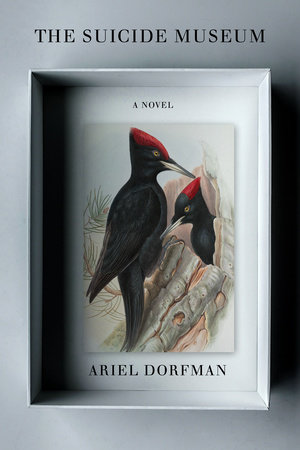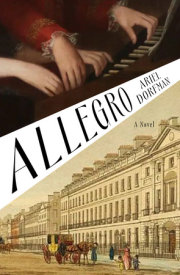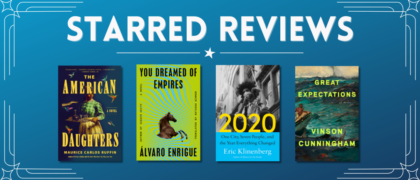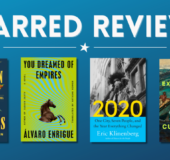1 Even before Joseph Hortha walked into the exorbitant breakfast room of the Hay-Adams hotel in Washington, DC, with his warm and devious smile, I should have suspected he spelled trouble.
My wife had warned me not to overly trust that enigmatic billionaire, that we had no idea what dark deeds he might have done to amass such a monstrous fortune, but I charged ahead, full blast anyway, let myself be enchanted by him, bewitched one might say, during that first encounter in 1983, so that when we met a second time seven years later and he proposed that I accompany him on what turned out to be a delirious adventure, I was unable to say no, sorry, I’m sorry, no, I already have far too much stress in my life as it is, thanks, but no. Or if I had been less financially distraught, maybe less obsessed myself with the mystery he wanted me to solve, the murder he wanted someone in Chile to investigate, or maybe if I had known sooner about The Suicide Museum and Hortha’s plans to save the planet, maybe this, maybe that, in a life made of far too many maybes—but none of that seems to matter now. Now that thirty years have passed, the thirty years I promised to remain silent and swore not to tell this story that is Hortha’s story and the story of his many secrets and, of course, my own story and what I was hiding, now that I am finally forcing myself to write the events that changed my life irremediably, the only thing that matters is where to begin, when it all began?
At times I trace the origin of my consent, why I accepted to assist Hortha in his mission, trace everything back to my own precarious existence, the day I survived death in Santiago during the coup of 1973, or the day a few months later when I went into exile. At other times I believe this has nothing to do with me, that if I had not been chosen by Hortha, this story of murder or of suicide would have been told anyway, needed to be told so badly that it would have found its way into the damaged world regardless of who was selected as the messenger, because it was set in motion many decades before both Hortha and I were born, this story was set in motion inexorably on that morning in 1908, when Salvador Allende’s mother gave birth to him, the child who was destined to become Chile’s president, perhaps already destined to die in the presidential palace in Santiago. But I am trapped again in maybe this and maybe that, and given so much uncertainty, perhaps it is best to simply start by explaining how my path first crossed Hortha’s in 1983.
I needed money and he had it, he had more than he knew what to spend it on. I had no idea what he looked like, did not even know if his real name was Ronald Karlson, but none of that carried any weight with me. It was enough that by the time we sat down together for the first time in Washington, he had already contributed to the cause of Chile and its resistance against General Augusto Pinochet’s military regime, sent checks to pay for safe houses and clandestine trade unions and student magazines purportedly about sports and gossip but in fact dedicated to organizing a youth movement. And he had also offered assistance for artists, my pet project, to subsidize writers and painters, musicians and actors so that, instead of leaving the country, as I had been obliged to, they could remain behind and bear witness to the struggle, the hope, the horror.
It was natural, therefore, that I should recur to him when, in April of 1983, I sought someone to finance a literary caper I was planning. In my defense, it should be noted that I did approach him reluctantly. Since leaving Chile I had become an expert in soliciting funds for others, but never for myself, no matter how dire and insecure our life had been, as our family wandered from country to country. And yet, I could, in all honesty, claim to Hortha that what I was bizarrely setting in motion would, besides benefiting me, impact public opinion and influential politicians, and so, convinced of the purity— or in any case the semipurity—of my intentions, I left a message with that philanthropist’s assistant, Pilar Santana.
I had always dealt with her in the past, rather than with her reclusive boss, but this time I told the answering machine that I would appreciate the opportunity of meeting with Mr. Karlson—as I then thought he was called—at his convenience, preferably in the Washington area, where we currently lived, though I could travel to Manhattan if necessary—not adding that I relished any chance to return to New York, where I’d spent my childhood and acquired the English language in which I now write these recollections. New York or Washington or anywhere else. I admit to not being overly optimistic: I knew that Ronald Karlson lived a hermit-like existence, one of those magnates who prefer to remain faceless, no photos or even uncredited quotes in the press, operating their business and their charities from the shadows.
So I didn’t expect a swift response, but on the next day . . . Pilar Santana spoke to me, as always, in Spanish. “
Una clarificación,” she said. “
Esta reunión, this meeting you seek, it’s for personal or for political reasons?” The wording of the question was brusque, intense, even puzzling—how had she guessed that this time I might require a handout for myself rather than for the cause?—but the frankness was mitigated by the warmth in her throat, something welcoming, almost purring, in the way she rounded the syllables with an accent straight from Madrid or Salamanca, and I recalled having liked that voice during the brief span of previous conversations, so I decided to consider her curiosity positively. It was encouraging that she had phoned back so promptly. And, anyway, I was the one asking for help, why shouldn’t she probe my motives?
“Both,” I answered. “
Las dos razones. Personal
and political. What I can guarantee is that Mr. Karlson will find it, at the very least, intriguing,” hoping that dangling this bait in front of him would do the trick.
He took the bait. Two days later, she informed me that Mr. Karlson would be spending the weekend in DC and was willing to meet for Sunday brunch at the Hay-Adams, at exactly twelve o’clock sharp. I remember even now that word,
exactamente, how it reminded me of my status as a beggar, someone expected to observe the rules of punctuality and obsequiousness.
I was there with half an hour to spare and was shown to a privileged table with a spectacular view of the White House by an exceedingly elegant maître d’, certainly more elegantly decked out than anything I could muster, despite my wife having dressed me in the only attire that seemed both casual and stylish that she had plucked from my scant expatriate wardrobe, murmuring that, regardless of her apprehensions about what I was getting myself into, she wanted me to look my best. The table, set for two, was close enough to the tuxedoed piano player that I could distinctly hear the tinkle of “Some Enchanted Evening” but far enough to ensure that when I met this stranger across a crowded room, nothing would distract from our tête-à-tête, not even the many other conversations that were humming along in that liveried breakfast room, as ladies with ornate Sunday hats leaned forward to peer adoringly into the eyes of their overgroomed male companions, who feigned attention as they did their best to eavesdrop on what a couple of prominent senators at a neighboring table were discussing.
It may have been a mistake to have arrived so early. With every minute that passed, I became more aware of how totally out of place I was in this den of power, wealth, and tradition, a man without a country, without a job, without health care, scrounging a living from freelance articles and paltry translations and meager advances on books that sold poorly. And still trying to procure a green card for myself and the family. My nervousness increased—I realized I was clutching my briefcase to my chest as if it were a life preserver—by doubts about the project I was about to put forward, what this Karlson fellow might know about me that would prompt him to shelve my plea for assistance. He was the sort of man, I assumed, who would marshal tons of evidence, probably through the superefficient Pilar, before accepting to meet, ferret out that I was dependable and dedicated to the cause of freedom in my country and around the world, but also notorious for an admittedly zany streak.
Maybe she had found out that, back in 1975, accompanied by my skeptical wife, I had traveled to Sweden to ask its prime minister, Olof Palme—a contact made by García Márquez—if he would loan the Chilean Resistance a ship so all its exiled artists could sail to Valparaíso and raucously demand to be allowed back into the country. Had somebody told Pilar that Palme had replied, with calm Scandinavian bluntness, that he had never heard of a more dangerous and irresponsible scheme, risking the lives of the most vocal ambassadors of the Resistance for a gesture that would not remove the dictator from his lair? What if this Santana woman had discovered that, a few years after that fiasco, I had invited a left-wing Belgian industrialist to fund a campaign to get all decent Chileans, in and out of the country, to observe one minute of silence, all at the same instant, at precisely 13:50 Chilean time, which was when Allende had been assassinated while defending democracy? My idea was that if we all simultaneously imagined a land without Pinochet, the General would melt away under the common prayer of millions, a thesis that elicited the response that rather than my New Agey idea—like levitating the Pentagon—what was needed to defeat fascism was to buy weapons for an uprising against the military, bring down the Chilean “pentagon.” Not that Karlson had ever subscribed to that armed resistance thesis, supporting, as far as I knew, only forms of nonviolent mobilization, so maybe he’d agree with my proposal that if enough compatriots wished fiercely and synchronously, devotedly and peacefully, for the tyrant’s downfall, he would ipso facto disappear in a puff of rancid smoke.
Afraid that Karlson might indeed have uncovered my previous escapades, I assuaged my anxiety by examining from afar the brunch buffet and its plentiful treats. Not that I was going to serve myself any item before my host arrived, and, even then, do my best to restrain my inveterate gluttony. Angélica had reminded me a few hours ago, noting that I had skipped my morning oatmeal and fruit, that this meeting had not been arranged in order to more amply stuff myself at this tycoon’s expense, but to extract from him the dollars required for my next extravaganza.
Though what harm could come from snuffling around the buffet, maybe popping some select tidbit into my mouth? That faux pas was prevented when, as I strolled toward that feast of delicacies, I spied a slender woman positioned by the entrance to the dining room. She was calmly looking in my direction—and she moved her head imperceptibly to the side, once, twice, intimating that I return to my seat. It had to be Pilar Santana, verifying that all was well before her boss descended from his billionaire cloud.
If I did not immediately retreat to the relative safety of the table it was due to the magnetic force exercised by that olive-skinned woman. It was not any one trait, nothing that could be termed spectacular—on the contrary, there was no exceptional sparkle or flash in her hazel-brown eyes, no sensual enticement from the unrouged lips or the carelessly hanging black hair, the breasts and hips that did not call attention to themselves, everything almost commonplace if it had not been for an aura of command that she exhaled. Command of her body, command of her desires, command of her circumstances—here was somebody you would want on your side if danger loomed, she could sniff out that danger before it hit you, a woman you definitely wouldn’t want as an enemy. Not Karlson’s assistant, as I had assumed, but his lover, I realized, as I retraced my steps backward, drinking her in like a potion or an endless lake, and also his gatekeeper and guardian and, for reasons I had yet to fathom, a potential ally, perchance willing to be my accomplice in whatever scheme I cared to design.
Still facing her, I bumped up against the chair I had been occupying a few moments ago, awaiting the magnate who, if all went as it should, might intervene benevolently in my life. And suddenly, there he was, making his way toward me with a smile and an outstretched hand, firmly clasping the hand I offered back, gesturing with the other that we should sit and enjoy each other’s company, what an honor, not at all like I had imagined this intensely withdrawn individual. Trying to impress me with his kindness and courtesy, putting me instantly at ease.
“So good of you to have made time,” he said, waving—but not imperiously, with something akin to equanimity and consideration—toward a waiter who hovered nearby with a bottle of Moët & Chandon. I looked past the bottle and noticed that Pilar had settled at a small table near the piano, all by herself, absorbed in jotting down something in a notebook. I turned to my host as he added, “I mean, you had to leave your family on a Sunday, silly of me not to have included them in the invitation, not that I didn’t think of it. Next time I’ll get to meet María Angélica, your wife’s name is María, right?”
“She prefers Angélica,” I said, and then, seeing him puzzled, like a student who’d been caught with a mistake on his homework, I quickly added: “But, like so many women in Chile, she also carries the name of María. In fact, though she’s not religious, she celebrates her saint’s day, the day of the Marías, each September 12th; it’s more important to her than her birthday.”
“Well, she should be here, along with your two sons, Rodrigo and Joaquín, right? Your youngest, born in Amsterdam like me—but not this time, if there’s anything I’ve learned it’s that if we can avoid mixing our loved ones up in the messy affairs of politics or business, well . . . But, at any rate, my gratitude.”
“Oh no, I’m the one who’s thankful for this chance to—”
“Thank Allende,” he said, and his voice lowered to an almost-reverential whisper. “Salvador Allende,” he added, as if to make sure I understood he was talking about the dead Chilean president and not some other martyr or hero. “Chicho. He saved my life. Not once. Twice.”
Copyright © 2023 by Ariel Dorfman. All rights reserved. No part of this excerpt may be reproduced or reprinted without permission in writing from the publisher.






